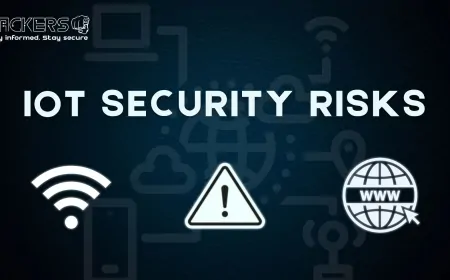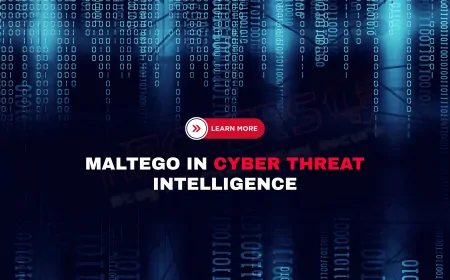How Does the Containers Certification Fit Into the DevSecOps World?
In the fast-paced world of software development, DevSecOps has emerged as a powerful approach, blending development, security, and operations to deliver secure, high-quality applications at speed. Containers—lightweight, portable units that package applications with their dependencies—are at the heart of this transformation. The Red Hat Certified Specialist in Containers (EX180/EX188) certification equips professionals with the skills to manage these containers effectively, making it a key credential in the DevSecOps ecosystem. This blog explores how this certification aligns with DevSecOps principles, the skills it imparts, and its impact on modern IT roles. Written in a clear, approachable way, this guide is perfect for beginners and seasoned professionals looking to thrive in the DevSecOps world.

Table of Contents
- What Is DevSecOps?
- The Role of Containers in DevSecOps
- Overview of the Containers Certification
- Key Skills Gained and Their DevSecOps Relevance
- How Containers Certification Integrates with DevSecOps
- Impact on DevSecOps Roles
- Skills and DevSecOps Alignment Table
- Preparing for the Certification in a DevSecOps Context
- Conclusion
- Frequently Asked Questions (FAQs)
What Is DevSecOps?
DevSecOps is an evolution of DevOps, a methodology that combines software development (Dev) and IT operations (Ops) to streamline application delivery. DevSecOps adds security (Sec) into the mix, embedding it throughout the development lifecycle to ensure applications are secure from the start. The goal is to foster collaboration among development, security, and operations teams, enabling faster releases without compromising safety.
Key principles of DevSecOps:
- Shift-left security: Addressing security early in development, not as an afterthought.
- Automation: Using tools to automate testing, deployment, and security checks.
- Collaboration: Encouraging teamwork across Dev, Sec, and Ops teams.
- Continuous improvement: Regularly refining processes to enhance speed and security.
Containers play a pivotal role in DevSecOps by providing consistent, portable environments that support these principles.
The Role of Containers in DevSecOps
Containers are lightweight, isolated environments that package applications with their dependencies, ensuring they run consistently across development, testing, and production. Tools like Podman, Buildah, and Skopeo, used in the Red Hat Containers Certification, enable efficient container management.
Why containers matter in DevSecOps:
- Consistency: Containers eliminate “it works on my machine” issues, ensuring uniform behavior across environments.
- Speed: They enable rapid deployment and scaling, supporting continuous integration and delivery (CI/CD).
- Security: Containers isolate applications, reducing attack surfaces, and support security scanning.
- Automation: Containers integrate with CI/CD pipelines for automated builds, tests, and deployments.
The Red Hat Containers Certification equips you to leverage these benefits in a DevSecOps workflow.
Overview of the Containers Certification
The Red Hat Certified Specialist in Containers (EX180/EX188) is a performance-based certification that validates your ability to manage containers using Red Hat’s tools: Podman (for running containers), Buildah (for building images), and Skopeo (for managing images). The exam tests practical skills in a live Red Hat Enterprise Linux (RHEL) environment, focusing on tasks like creating containers, configuring storage, and securing workloads.
Key details:
- Duration: 2-3 hours
- Format: Hands-on, performance-based tasks
- Focus: Container management without Kubernetes orchestration
This certification is ideal for professionals in DevSecOps roles, as it aligns with the need for secure, automated, and collaborative workflows.
Key Skills Gained and Their DevSecOps Relevance
The EX180/EX188 certification imparts skills that directly support DevSecOps practices. Here’s a breakdown:
- Container Creation and Management: Using Podman to create and manage containers ensures consistent application deployment, a cornerstone of CI/CD pipelines.
- Container Image Management: Building and managing images with Buildah and Skopeo enables automated builds and secure image distribution.
- Container Storage: Configuring persistent storage supports stateful applications, ensuring data integrity in production.
- Container Networking: Setting up networking enables secure communication in microservices architectures.
- Troubleshooting: Diagnosing issues minimizes downtime, supporting continuous delivery.
- Security Practices: Running containers as non-root users and using SELinux aligns with shift-left security principles.
These skills enable you to contribute to DevSecOps by automating processes, securing applications, and fostering collaboration.
How Containers Certification Integrates with DevSecOps
The EX180/EX188 certification aligns with DevSecOps by equipping you to:
- Automate Workflows: Use Podman and Buildah to automate container builds and deployments in CI/CD pipelines, reducing manual errors.
- Enhance Security: Implement security best practices, like non-root containers and image scanning, to address vulnerabilities early.
- Support Collaboration: Create consistent container environments that developers, security teams, and operators can work with seamlessly.
- Enable Scalability: Manage containers efficiently to support scalable, cloud-native applications.
For example, in a DevSecOps pipeline, you might use Podman to build a containerized web application, scan its image for vulnerabilities with Skopeo, and deploy it securely, ensuring all teams can trust the environment.
Impact on DevSecOps Roles
The skills gained from the certification are directly applicable to key DevSecOps roles:
- DevOps Engineer: Automate container builds and deployments in CI/CD pipelines, ensuring rapid delivery.
- Security Engineer: Secure containers with SELinux and non-root configurations to meet compliance requirements.
- System Administrator: Manage container infrastructure on RHEL, ensuring reliability and performance.
- Cloud Architect: Design container-based solutions for cloud platforms like AWS, Azure, or OpenShift.
These roles benefit from the certification’s focus on practical, hands-on skills that align with DevSecOps goals.
Skills and DevSecOps Alignment Table
| Skill | Tool | DevSecOps Principle | Real-World Application |
|---|---|---|---|
| Container Creation | Podman | Automation, Consistency | Deploy apps in CI/CD |
| Image Management | Buildah, Skopeo | Automation, Security | Build secure images |
| Container Storage | Podman | Reliability | Persistent data for apps |
| Container Networking | Podman | Collaboration | Microservices connectivity |
| Troubleshooting | Podman, logs | Continuous Improvement | Minimize downtime |
| Securing Containers | Podman, SELinux | Shift-Left Security | Secure workloads |
Preparing for the Certification in a DevSecOps Context
To prepare for the EX180/EX188 with a DevSecOps mindset, focus on aligning your study with DevSecOps principles:
- Learn Automation: Practice integrating Podman and Buildah with CI/CD tools like Jenkins or GitLab.
- Prioritize Security: Study SELinux and non-root container configurations to embed security early.
- Practice Collaboration: Simulate team workflows by sharing container images via registries.
- Use Real-World Scenarios: Deploy sample applications in containers, mimicking DevSecOps pipelines.
- Leverage Resources: Enroll in Red Hat’s DO180 course, use the OpenShift Developer Sandbox, and practice with KodeKloud labs.
Aim for 2-3 months of study, combining theory with hands-on labs to build skills that translate to DevSecOps environments.
Conclusion
The Red Hat Certified Specialist in Containers (EX180/EX188) is a powerful credential that aligns seamlessly with the DevSecOps world. By mastering container management, image creation, storage, networking, troubleshooting, and security, you gain skills that support automation, security, and collaboration—core pillars of DevSecOps. These skills empower you to contribute to CI/CD pipelines, secure applications early, and ensure reliable deployments in roles like DevOps engineer, security engineer, or cloud architect. As organizations increasingly adopt cloud-native technologies, this certification positions you as a key player in building secure, scalable, and efficient systems. With dedicated preparation, you can leverage this certification to thrive in the dynamic DevSecOps landscape.
Frequently Asked Questions (FAQs)
What is the Red Hat Containers Certification?
It’s a certification (EX180/EX188) that validates skills in managing containers using Podman, Buildah, and Skopeo.
How does EX180/EX188 relate to DevSecOps?
It teaches container management skills that support automation, security, and collaboration in DevSecOps workflows.
What is DevSecOps?
DevSecOps integrates development, security, and operations to deliver secure applications quickly.
Why are containers important in DevSecOps?
Containers ensure consistency, speed, security, and automation in application deployment.
What tools are covered in the certification?
Podman for running containers, Buildah for building images, and Skopeo for managing images.
How does the certification help DevOps engineers?
It enables them to automate container deployments in CI/CD pipelines, enhancing delivery speed.
Does the certification cover security?
Yes, it includes running non-root containers and using SELinux for security.
Can beginners pursue EX180/EX188?
Yes, with basic Linux knowledge and dedicated study, beginners can succeed.
How long is the EX180/EX188 exam?
It lasts 2-3 hours and involves hands-on tasks in a RHEL environment.
What is Podman?
Podman is a daemonless container engine for managing containers, similar to Docker.
How does the certification support CI/CD?
It teaches skills to build and deploy containers in automated CI/CD pipelines.
Is the certification recognized in DevSecOps?
Yes, especially in organizations using Red Hat solutions or container technologies.
How does EX180/EX188 compare to Kubernetes certifications?
It focuses on container management, not orchestration, making it complementary to Kubernetes certifications.
What roles benefit from this certification?
DevOps engineer, security engineer, system administrator, and cloud architect.
How do I prepare for the certification?
Use Red Hat’s DO180 course, practice with Podman, and simulate DevSecOps scenarios.
Does the certification include troubleshooting?
Yes, it teaches diagnosing and fixing container issues to minimize downtime.
Can I use these skills in cloud environments?
Yes, container skills are critical for cloud platforms like AWS, Azure, or OpenShift.
What is SELinux?
SELinux is a security module for enforcing access controls, used to secure containers.
Can I retake the EX180/EX188 if I fail?
Yes, after a 7-day waiting period and paying the exam fee again.
Where can I learn more about the certification?
Visit Red Hat’s website for exam objectives and training courses like DO180.
What's Your Reaction?










































































